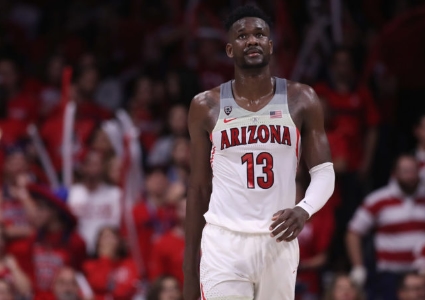Polling

Suggest an important issue not listed in this sub-category (). (Maximum 60 Characters)
Amateur athlete compensation

In 2021, college sports teams generated about $1.15 billion in revenue for their universities and the NCAA. Many athletic directors and coaches also earn millions of dollars in annual salaries and endorsements. However, even though most college athletes practice and train 12 months a year while attending school full time, the NCAA had insisted they are amateurs and ineligible to be compensated more than the scholarships they receive. Critics claim this convenient rule allows the exploitation of many young American men and women, saying other students attend universities on non-athletic scholarships and are not forced to physically work hard, risk serious injury or help make millions for their school and the NCAA. Financial stress causes many of these young athletes to drop out of school or leave early in an attempt to play in professional leagues. Since athletic scholarships do not cover all student costs and most athletes do not have time for a job, at least 85% of all scholarship players live below the poverty line. Most universities do not provide health insurance to scholarship athletes, and many revoke the scholarships of those who get injured or who do not perform as well as expected.
Even after athletes have left college, the NCAA retains their licensing rights in perpetuity. Critics claim that everyone - including the NCAA, colleges, coaches, TV networks, advertisers, apparel and video game manufacturers make money off our “amateur” athletes - except the athletes themselves. Compensation proponents say colleges should be allowed to give stipends, jobs and health insurance to these athletes. One study found the average cost to colleges for awarding a full scholarship to an athlete is about $3,200.
Recently, the NCAA reversed its long-time amateurism argument and proposed a 10-year $15 billion agreement that will directly pay compensation to athletes playing in the Big Ten, SEC, Pac-12, Big 12 and ACC conferences. This agreement also would pay compensation to 25,000 athletes who attended 363 Division I colleges and were denied the ability to make money by marketing their names and images during their playing days. This agreement must still be approved by the courts and it is unclear how this plan would be affected by Title IX, the federal law dictating that schools must provide equal opportunities for men and women in athletics.
Proposed Legislation: Reintroduction of S.414 - Amateur Athletes Protection and Compensation Act of 2021
Prospective Sponsor: Sen. Jerry Moran (KS)
Even after athletes have left college, the NCAA retains their licensing rights in perpetuity. Critics claim that everyone - including the NCAA, colleges, coaches, TV networks, advertisers, apparel and video game manufacturers make money off our “amateur” athletes - except the athletes themselves. Compensation proponents say colleges should be allowed to give stipends, jobs and health insurance to these athletes. One study found the average cost to colleges for awarding a full scholarship to an athlete is about $3,200.
Recently, the NCAA reversed its long-time amateurism argument and proposed a 10-year $15 billion agreement that will directly pay compensation to athletes playing in the Big Ten, SEC, Pac-12, Big 12 and ACC conferences. This agreement also would pay compensation to 25,000 athletes who attended 363 Division I colleges and were denied the ability to make money by marketing their names and images during their playing days. This agreement must still be approved by the courts and it is unclear how this plan would be affected by Title IX, the federal law dictating that schools must provide equal opportunities for men and women in athletics.
Proposed Legislation: Reintroduction of S.414 - Amateur Athletes Protection and Compensation Act of 2021
Prospective Sponsor: Sen. Jerry Moran (KS)
Poll Opening Date
June 17, 2024
Poll Closing Date
June 23, 2024
Democracy Rules respects the privacy of your information.
See PRIVACY STATEMENT
See PRIVACY STATEMENT